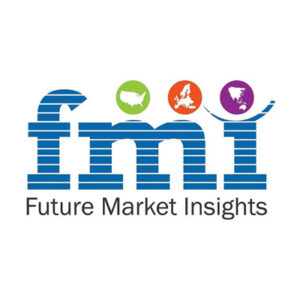Global aerospace adhesive and sealants market forecast at $1.5 billion by 2032
Pune, India – The global market for Aerospace Adhesives and Sealants is anticipated to reach US$ 921.4 Mn in 2022 and increase at a CAGR of 5.1% worth US$ 1515.2 Mn between 2022 and 2032, according to Future Industry Insights’ most recent market report.
Aerospace adhesives and sealants are different from regular adhesives and sealants, as they are exposed to high temperature and high pressure gradients during their lifetime. High performance resins such as epoxy, polyurethane, silicone, and hybrid polymers are used in aerospace industry to provide required waterproofing, filling, bonding, and sealing.
Among these resins, epoxy and polyurethane adhesives are more widely used. Such materials are blended with volatile organic compounds and applied to aircraft components such as pipes, fixtures, and panels.
Owing to high Volatile Organic Compounds (VOC) content in the aerospace adhesives and sealants, the industry is exposed to stringent environment regulations by governments across the globe. Solvent based and water based are the prominent technologies used in the aerospace adhesives and sealants market.
Although solvent borne technology is more preferred by the manufacturers, water borne technology is expected to witness higher growth rate owing to its environment friendly characteristics. The global adhesives and sealants market is projected to witness moderate CAGR and is anticipated to grow in parallel with the increasing global production of aircrafts.
Leading manufacturers are spending more on research and development in order to provide aerospace adhesives and sealants that contain less volatile organic compounds and comply with the specifications by OEMs.
The global aerospace adhesives and sealants market is projected to be driven by increasing penetration of composites in aircraft industry. In order to increase the fuel efficiency of the vehicle by emphasizing on light weight, the aircraft manufacturing companies are adopting more composite components in the assembly.
Owing to increasing penetration of composite components in aircrafts, the demand for aerospace adhesives and sealants is increasing. Moreover, increasing global aircraft production is another prominent driver for the aerospace adhesives and sealants market growth. The production of aircraft vehicles is mainly driven by increasing air traffic growth in emerging countries and growing urbanization in emerging countries such as China and India.
The high performance aerospace adhesives and sealants contain high amount of VOC content. Owing to increasing environmental regulations on transportation industry by governments across the globe, OEM manufacturers are demanding for eco-friendly components. Increasing government regulations like those are projected to restrain market growth over the forecast period.
Moreover, the higher cost involved in the research and development of aerospace adhesives and sealants which complies with the specifications by OEMs is another prominent restraint for the market.
Global aerospace adhesives and sealants market is segmented based on product type, technology type, resin type, aircraft type, and region. Based on product type, the aerospace adhesives and sealants market is segmented as adhesives, and sealants.
While on the basis of resin type, the global market is classified as epoxy resins, silicone, polyurethane, and others. Others segment comprises of modified polymers. Among these segments, epoxy is estimated to account for a major share in the overall market.
Based on technology type, the global aerospace adhesives and sealants market is classified as water borne and solvent borne technology. Most of the manufacturers prefer solvent borne technology, however the preference is shifting towards waterborne technology owing to the more stringent regulations on solvent borne technology.
Some of the examples of the participants involved in the global aerospace adhesives and sealants market are: PPG Industries Inc., 3M, Royal Adhesives and Sealants, Cytec Industries Inc., Huntsman Corporation, United Resin Corporation, Hexcel Corporation, Beacon Adhesives Inc., Henkel AG and Company, Solvay Group

